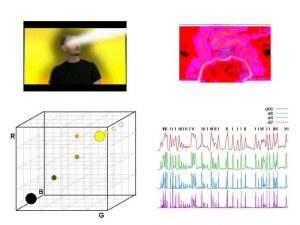News Story
KMi delivers book to publisher
Monday 21 Dec 2009
KMi professor Stefan Rüger has delivered a text book on Multimedia Information Retrieval (bibtex) for Morgan & Claypool‘s series of synthesis lectures on information concepts, retrieval and services.
Quoting from the book’s preface Rüger said: ”I am not easily convinced to write a book. The main reason why I got fascinated by this assignment is that it gave me a unique opportunity to write up tricks of the trade that are relevant for a number of multimedia search projects (and that I have had to endlessly repeat, again and again, during the supervision of around 65 undergraduate, master and PhD projects over the last decade). The Morgan & Claypool format of this lecture series is great too, as I can go to considerably more detail than in a book chapter without having to deliver a 700 page opus.”
At its very core Rüger’s multimedia information retrieval book is about the process of searching for and finding multimedia documents. The corresponding research field is concerned with building the best possible multimedia search engines. The intriguing bit here is that the query itself can be a multimedia excerpt: For example, when you walk around in an unknown place and stumble across an interesting landmark, would it not be great if you could just take a picture with your mobile phone and send it to a service that finds a similar picture in a database and tells you more about the building — and about its significance for that matter?
The book goes further by examining the full matrix of a variety of query modes versus document types. How do you retrieve a music piece by humming? What if you want to find news video clips on forest fires using a still image? The text discusses underlying techniques and common approaches to facilitate multimedia search engines from metadata driven retrieval, via piggy-back text retrieval where automated processes create text surrogates for multimedia, automated image annotation and content-based retrieval. The latter is studied in great depth looking at features and distances, and how to effectively combine them for efficient retrieval, to a point where the readers have the ingredients and recipe in their hands for building their own multimedia search engines.
The book recognises that supporting users in their resource discovery mission when hunting for multimedia material is not a technological indexing problem alone. It looks at interactive ways of engaging with repositories through browsing and relevance feedback, roping in geographical context, and providing visual summaries for videos. The last chapter concludes with an overview of state-of-the-art research projects in the area of multimedia information retrieval, giving an indication of the research and development trends and, thereby, a glimpse of the future world.
Rüger’s book contains 74 illustrations, 4 videos and one soundfile to support the mathematical and research-oriented treatment of the area of Multimedia Information Retrieval. One of the videos, a SciFi trailer, has been shot in KMi and directed by former KMi PhD student Vlad Tanasescu. The illustrations can be downloaded and re-used by readers. Each chapter concludes with a set of reflective exercises, which can be used as supplemental assignments for university courses or as suggestions for further independent exploration by interested readers.
The writing was partially supported by UK’s Engineering and Physical Sciences Research Council (EPSRC) through their grant Video Digital Libraries (EP/G036187/1), while collaborating with KMi Affiliate David Bainbridge at the University of Waikato from Nov 2008 to Apr 2009. Another EPSRC grant, Multimedia Knowledge Management Network (GR/T02690/01, 2004-2008), has enabled Rüger to interact with colleagues and learn about their respective fields and perspectives.
The president and CEO of Morgan & Claypool publishers, Michael Morgan, founded and ran Morgan Kaufmann until it was sold to Elsevier (via Academic Press/Harcourt) in 2002, started the new publishing company in 2005. Its unique synthesis lecture format of a electronic searchable linkable pdf books is meant to enable users to more efficiently find information specific to their interest while allowing for a high level of authoritativeness, as authors focus on their area of active research. Electronic versions of the final book are published within days, print versions within weeks of delivering the final version.
Related Links:
- Morgan & Claypool
- Synthesis lectures on information concepts, retrieval and services
- Multimedia Information Retrieval
Connected
Latest News
KMi’s Dr. Retno Larasati Delivers Keynote on ‘Ethics in AI Education’ at ICONSEIR 2025
Celebrating Ortenz Rose: 45+ Years at The Open University
Transforming transport with AI: KMi and ClearView’s vision for smart cities





